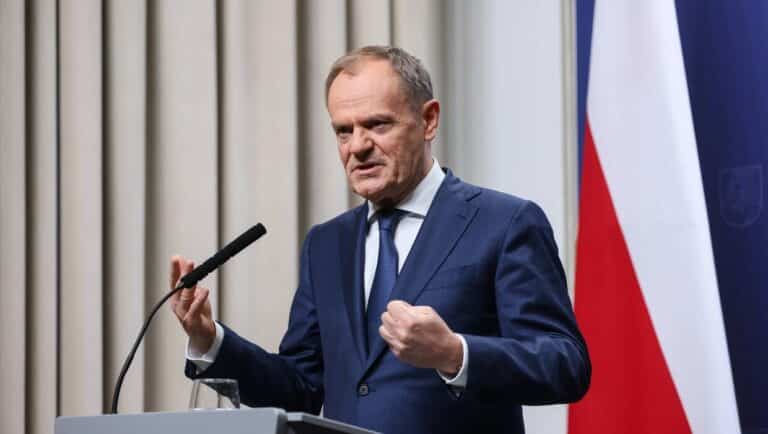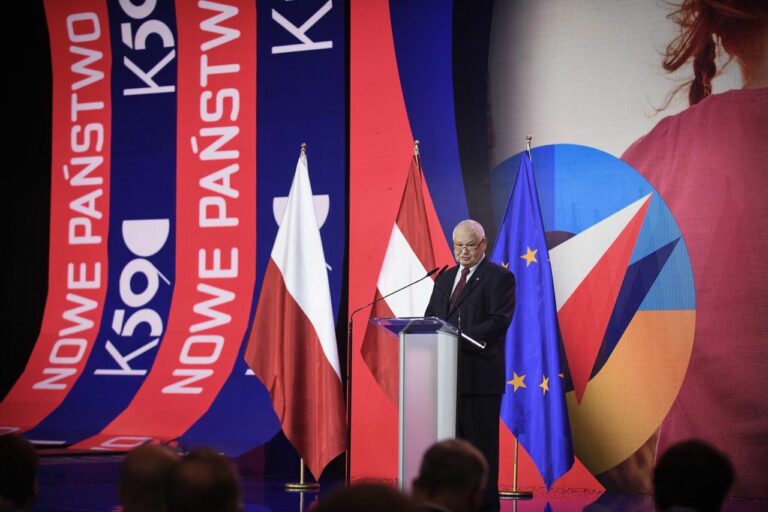Sweden-Poland trade on the upside
Sales of goods between Poland and Sweden have increased by 400% since Poland joined the EU in 2004. Today, Poland ranks tenth among Sweden’s largest export markets and eighth among its most important import partners, according to a report prepared by SpotData – the analysis center of Puls Biznesu – and the Scandinavian-Polish Chamber of Commerce (SPCC).
Over 700 companies with Swedish capital operate in Poland, the value of their investments is €5.5 billion and they employ around 109,000 people, directly generating 0.5% of Polish GDP.
“The system for introducing new drugs for reimbursement has definitely improved over the last few years. We are still far behind the European average, but we are consistently closing the gap and progress is noticeable,” says Wiktor Janicki, President of the Management Board at AstraZeneca Pharma Poland.
The largest industry in the industrial sector from the point of view of Swedish investments is the production of machines and devices, which employs 11,500. The largest investor in this area is Electrolux, which employs over 5,000 in five factories.
Another important and large industry in which Swedish industrial manufacturers are active in Poland is furniture production and the related interior finishing industry. It employs 10,500 people. The leader here is IKEA.
The automotive industry employs almost 10,000 people. The largest Swedish investor in this field in terms of employment is Autoliv, a manufacturer of seat belts and airbag modules, which employs over 3,000 people.
A large group of Swedish companies in Poland are involved in the processing of materials, both metal and plastic.
Over 4,300 people work in wholesale companies. The Assa Abloy Group employs over 1,300 people in Poland, and its companies deal with the production, sale and installation of door systems. Services, research and development in Swedish companies operating in Poland in the service sectors employ a total of over 35,000 people. In terms of the number of employees, a very large enterprise with Swedish capital is also Securitas Polska (approx. 5,000 people).
An increasingly important industry is business support services, concentrated in BPO (business process outsourcing) and SSC (shared services centers). Many large manufacturing, trading and service companies have global business support operations in Poland, which work for the benefit of the international operations of companies. We write more about this area in the chapter on trade in services.
“Medicover employs over 45,000 people, of which over 22,800 are in Poland. For example, our Electronic School Medicine System (ESMS) is already used in 170 Polish schools, and 56,000 children participated in the studies using it,” says Richard Sands, Director of the Strategy Department, Medicover.
Sweden is one of five countries in the world with the highest rate of expenditure on research and development. Data for 2021 indicate that R&D expenditure in Sweden amounts to 3.5% in relation to GDP (3.74% in 2023), and in this respect only Israel, the US, Belgium and South Korea are higher. This pro-innovation business attitude is naturally transferred along with Swedish companies to Poland.
“Poland enjoys a reputation in the field of mathematics and programming, and the integration of research and production activities in one place makes it one of the leading locations in Europe for Ericsson in the context of implementing 5G technology,” says Martin Mellor, Head of Ericsson in Poland.
Another example of Swedish capital’s involvement in investments related to sustainable development is the eV City powered by Volvo program, which will be implemented in Poland by Volvo together with local governments.
Another good example is the activity of Stena Recycling, which deals with waste processing. In the five years to 2022, the company’s revenues in Poland increased almost threefold, from approx. PLN 0.5 to approx. PLN 1.5 billion. The company also aims to spread knowledge about the idea of circular economy, including by educating entrepreneurs and organizing the Stena Circular Economy Award competition.
Export of goods from Poland to Sweden is concentrated in the automotive sector (automotive parts, batteries and trucks), furniture and the production of telecommunications equipment and IT devices. Among the goods exported from Poland to Sweden, the most important position is occupied by automotive parts, the value of which in 2023 amounted to over €650 million. Over the last 10 years, the value of export of car parts sold to Sweden has increased almost 4.5 times.
In second place in this ranking are telephones, including mobile phones and their parts, and their export in 2023 exceeded €400 million. Over the last 10 years, sales of these goods to Sweden have increased more than fourteen times, and have tripled since 2019 alone. The dynamic improvement in the volume of sales to Sweden also applies to electric batteries, used, among others, in the production of cars and scooters. Over the past 10 years, the value of their exports has increased ninefold.
Enterprises from Poland also record stable exports of monitors and projectors, which are the third most important export product, but also IT equipment. Furniture and chairs occupy a significant position in the total export to Sweden, their total value in 2023 amounted to €370 million.







